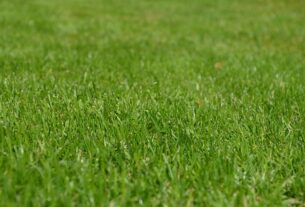Composting is a powerful tool for sustainable living, transforming organic yard waste (Yard Waste Removal and Recycling) into nutrient-rich compost beneficial for any green space. By recycling materials like food scraps and garden residues, it reduces landfill waste, enhances soil structure, promotes plant growth, and cuts down on chemical fertilizers. Educational initiatives focused on integrating composting and recycling education into school curricula and community programs empower students to become environmentally conscious citizens from a young age, leading to improved Yard Waste Removal and Recycling practices within the community.
“Composting and recycling are essential practices for sustainable living, offering numerous environmental benefits. This article explores these eco-friendly approaches in detail. We delve into the fundamentals of composting, highlighting its advantages and providing a comprehensive guide to effective yard waste removal. Additionally, we examine educational initiatives aimed at fostering community engagement in recycling practices. By understanding these processes, individuals can contribute to a greener future, reducing waste and promoting a healthier planet.”
- Understanding Composting: The Benefits and Basics
- Effective Recycling Practices for Yard Waste
- Educational Initiatives for a Sustainable Community
Understanding Composting: The Benefits and Basics

Understanding composting is a game-changer in the quest for sustainable living, especially when it comes to yard waste removal and recycling. It’s a natural process that transforms organic materials, like food scraps and garden residues, into nutrient-rich compost, which is a valuable asset for any green space. By embracing this practice, individuals can significantly reduce their environmental footprint and contribute to a healthier ecosystem.
The benefits are multi-fold; not only does composting divert a substantial amount of waste from landfills, but it also enriches soil structure, promotes plant growth, and reduces the need for chemical fertilizers. It’s a simple yet powerful method to create a sustainable cycle where organic matter is recycled back into the landscape, fostering a harmonious relationship with nature.
Effective Recycling Practices for Yard Waste

Effective recycling practices for yard waste involve a simple yet powerful combination of source separation, composting, and proper disposal. Homeowners should start by dividing their organic materials, such as grass clippings, leaves, and food scraps, from non-biodegradable items like plastic bags and metal cans. This initial step ensures that recyclable materials are processed efficiently at local facilities.
Composting is a natural process that transforms yard waste into nutrient-rich soil amendments. By setting up a compost pile or bin in their backyard, residents can divert significant amounts of organic matter from landfills, reducing greenhouse gas emissions and conserving valuable resources. Proper maintenance of the compost pile includes maintaining a balance of green (nitrogen-rich) and brown (carbon-rich) materials, keeping it moist, and regularly turning the pile to aerate the compost.
Educational Initiatives for a Sustainable Community

Educational initiatives play a pivotal role in fostering a sustainable community, especially when it comes to promoting responsible waste management practices. By integrating composting and recycling education into local curricula, schools can empower students to become environmentally conscious citizens from an early age. Interactive workshops, classroom presentations, and hands-on activities can make complex topics engaging and accessible. Teaching students about the benefits of composting yard waste and proper recycling techniques not only reduces environmental impact but also encourages a sense of responsibility towards their community’s future.
Community-led programs and partnerships with local authorities further reinforce these teachings. Public awareness campaigns, workshops held at community centers, and door-to-door educational visits by experts can significantly contribute to improving yard waste removal and recycling practices. These initiatives ensure that knowledge is not only imparted in academic settings but also translates into real-world actions, creating a ripple effect of sustainability within the neighborhood.
By educating communities about effective composting and recycling practices, particularly in managing yard waste, we can significantly reduce environmental impact. These educational initiatives foster a culture of sustainability, empowering individuals to make informed choices that benefit local ecosystems. Integrating these practices into daily routines is key to enhancing resource efficiency and ensuring a greener future, where responsible disposal methods are the norm rather than the exception. Through understanding and adopting these principles, we collectively contribute to effective yard waste removal and recycling, creating a more sustainable and vibrant community.



